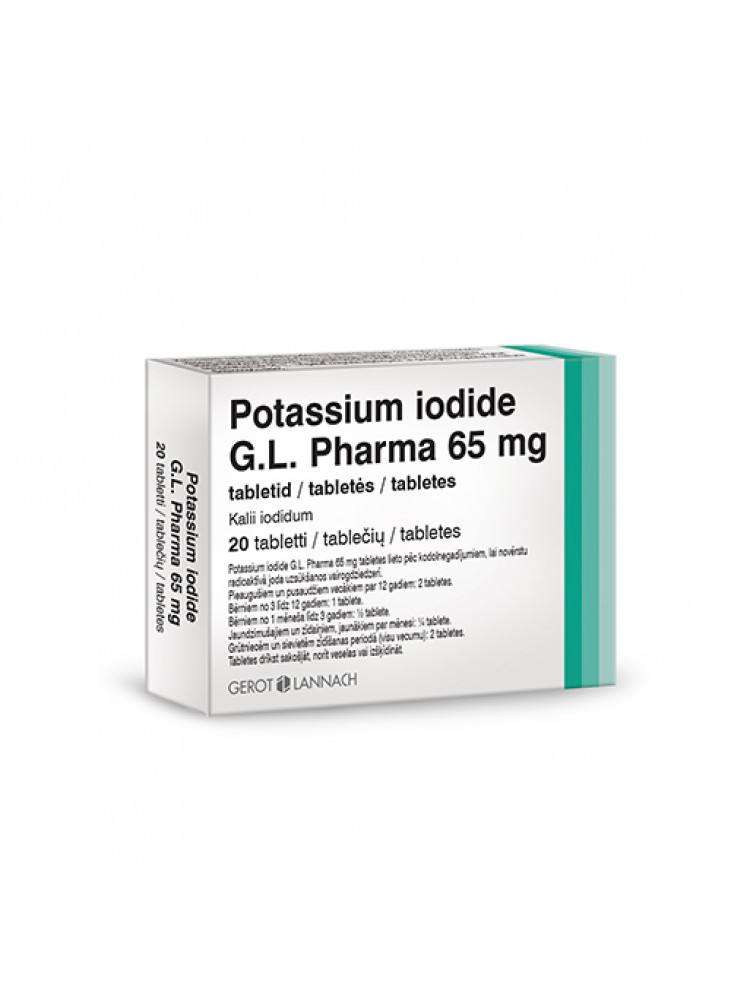Potassium iodide is used to treat overactive thyroid and to protect the thyroid gland from the effects of radiation from inhaled or swallowed radioactive iodine. It may be used before and after administration of medicine containing radioactive iodine or after accidental exposure to radioactive iodine (for example, from nuclear power plant accidents that involved release of radioactivity to the environment).
Potassium iodide is used to protect the thyroid gland from taking in radioactive iodine that may be released during a nuclear radiation emergency. Radioactive iodine can damage the thyroid gland. You should only take potassium iodide if there is a nuclear radiation emergency and public officials tell you that you should take it. Potassium iodide is in a class of medications called anti-thyroid medications. It works by blocking radioactive iodine from entering the thyroid gland.
Potassium iodide can protect you from the effects of radioactive iodine that may be released during a nuclear radiation emergency, but will not protect you from other dangerous substances that may be released during the emergency. Public officials may tell you to do other things to protect yourself during the emergency. Follow all of these directions carefully.
Take potassium iodide at around the same time every day. If you are told to take potassium iodide during a nuclear radiation emergency, you should not take it more often than once every 24 hours. Follow the directions on the package label carefully, and ask your doctor or pharmacist to explain any part you do not understand. Take potassium iodide exactly as directed. Do not take more or less of it than directed on the package label. Taking potassium iodide more often will not give you more protection during the emergency, and will increase the risk that you may experience side effects.

